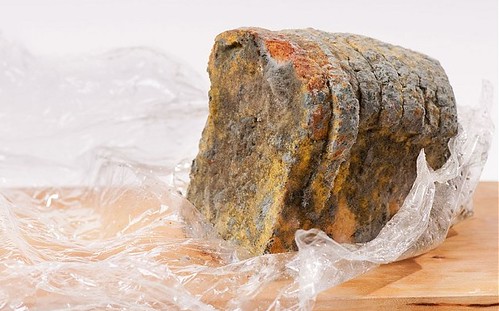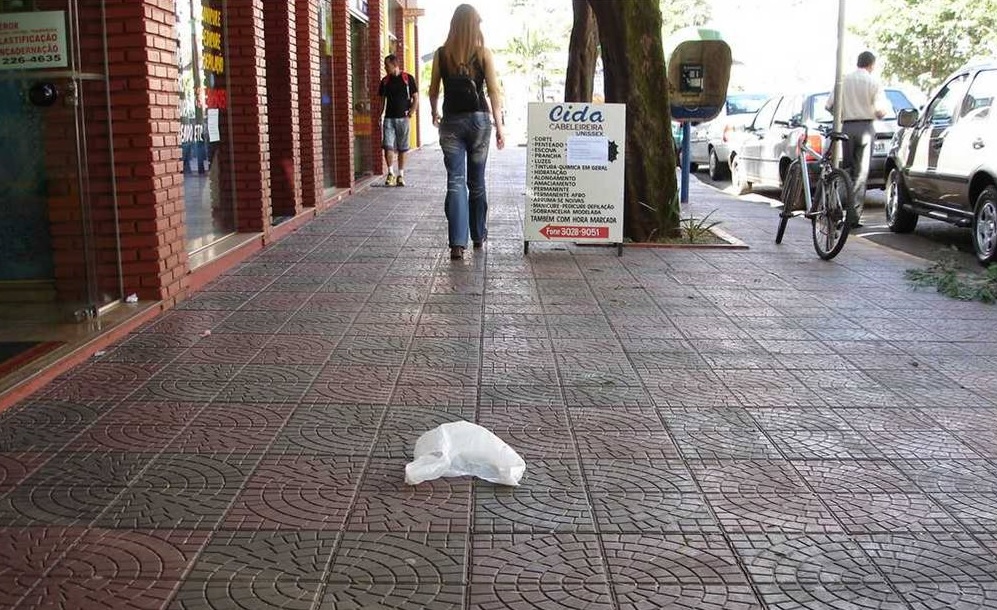Entrevista concedida pela FUNVERDE para a revista HM! sobre as malditas sacolas plásticas de uso…
Cientistas desenvolvem sacos plásticos que impedem o crescimento de mofo em pães

Os plásticos d2p provaram inibir o crescimento de mofo em pães e queijos. A tecnologia previne o crescimento de fungos e bactérias.
A Symphony e a Janssen (divisão farmacêutica da Johnson & Johnson) estão em conversações com supermercados para utilização destes sacos plásticos.
Testes mostram que o uso dos sacos pode aumentar o tempo de vida de pães e queijos ao inibir a contaminação destes e de outros tipos de alimentos.
Fabricantes brasileiros de embalagens e artigos plásticos já licenciados para uso do d2w já tem acesso ao d2p.
Fonte – News Res Brasil de 05 de novembro de 2013. RES Brasil Ltda é representante exclusiva no Brasil da Symphony e suas tecnologias. Symphony Environmental Ltda. detentora das tecnolgias d2w®, d2p® e d2t®, é empresa certificada ISO, é uma subsidiária integral da Symphony Environmental Technologies PLC, uma empresa pública britânica criada em 1995 e dedicada a encontrar soluções técnicas para os problemas ambientais do mundo. É um membro da Associação dos Plásticos Oxibiodegradáveis, da Sociedade da Indústria Química (Reino Unido), da British Plastics Federation (BPF), da Organização Européia de Embalagem e Meio Ambiente (Europen) e do Grupo Britânico de Marcas. Symphony participa ativamente dos trabalhos da British Standards Institute (BSI), da American Society for Testing and Materials (ASTM), da organização europeia de normatização (CEN) e da International Standards Organization (ISO). A Symphony tem laboratórios e instalações de testes na Inglaterra, onde constantemente testa, desenvolve e aprimora seus produtos, em colaboração com universidades e especialistas no Reino Unido e no exterior.
***
Food bags that can stop bread from going mouldy developed
Bread and cheese may keep for longer thanks to new plastic bags that can prevent mould and bacteria growing
Plastic bags that can stop bread and cheese from going mouldy after just a few days have been developed by scientists.
The technology, which uses chemicals that prevent bacteria and fungi from growing, allows food to last for longer.
It could mean an end to throwing away supermarket bread after just a couple of days in the bread bin and cheese that remains mould free for weeks.
Pharmaceutical company Janssen have spent two years developing the technology with plastics manufacturer Symphony Environmental.
They are now in discussions with several food manufacturers and supermarkets to use the bags on their products.
The technology could also be used to make credit cards and the new plastic bank notes more hygienic, according to Symphony Environmental.
Tests have shown that the plastic can increase the shelf-life of bread and cheese without contaminating the food.
Michael Stephen, director of Symphony Environmental, said the plastic also had the potential to do the same for fruit, vegetables and even meat.
He said: “We have come up with a way of making plastic that is antimicrobial and can be used in food wrapping.
“We’ve done a lot of tests on food packaging and it has been shown to reduce the mould that grows on both bread and cheese.”
In Britain around 15 million tonnes of food is thrown away each year, much of it because it has spoiled or gone mouldy.
Bread it among the most wasted food, with households throwing away an estimated 4.4 million tonnes a year – about a third of all the bread purchased by UK households.
Tesco, Britain’s biggest supermarket, revealed last month that almost half of the bread sold in its stores ends up in the bin.
The technology developed by Janssen and Symphony, which they have called D2P, fixes antibacterial and antifungal chemicals into the plastic.
They have found it can control bacteria such as E. coli, Salmonella, Listeria, which can cause food poisoning.
It can also control the growth of fungus that grow on breads and others such as Mucor piriformis, which causes soft fruits to rot, and Penicillium roqueforti, which is found on cheese.
Mr Stephen added: “Initially we anticipate it being used in pipes, door handles and hand rails on the tube, for example, to help reduce the spread of bacteria.
“It can also be put into man-made fibres so we are running some trials putting it into clothes and trainers to stop the bacteria that can cause them to smell.”
Fonte – Richard Gray, Science Correspondent, The Sunday Telegraph, 03 november 2013




Este Post tem 0 Comentários